Can AI Build a Civilization on Another Planet?
- March 16, 2025
- 0
The Future of AI and Space Colonization: Can AI Lead Humanity to the Stars? Today I want to talk about an idea that came to my mind mainly
The Future of AI and Space Colonization: Can AI Lead Humanity to the Stars? Today I want to talk about an idea that came to my mind mainly
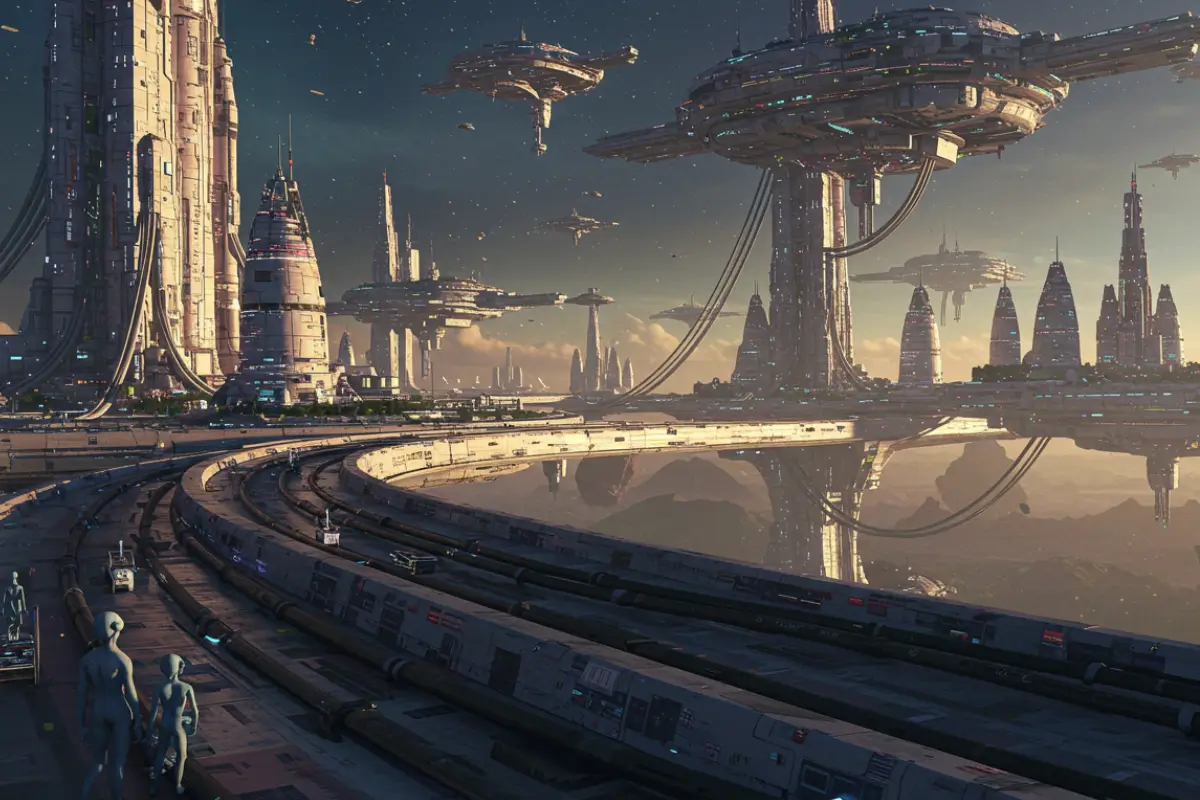
Today I want to talk about an idea that came to my mind mainly because of the situation of the so-called civilization on Mars and also because of the great desire that most of us have, including me, space exploration and artificial intelligence.
Sounds like something straight out of a sci-fi movie, right? Well, the reality might not be as far-fetched as you think. With the rapid advancement of AI, robotics, and space exploration, we could be looking at a future where AI is the foundation of an off-world society.
Imagine a scenario where AI-driven robots build entire cities before humans even arrive. These intelligent systems could handle everything from constructing habitats to terraforming planets. But is this really possible?
And if so, what challenges would we need to overcome to make it happen? Let’s dive deep into the fascinating potential of AI-powered space colonization.
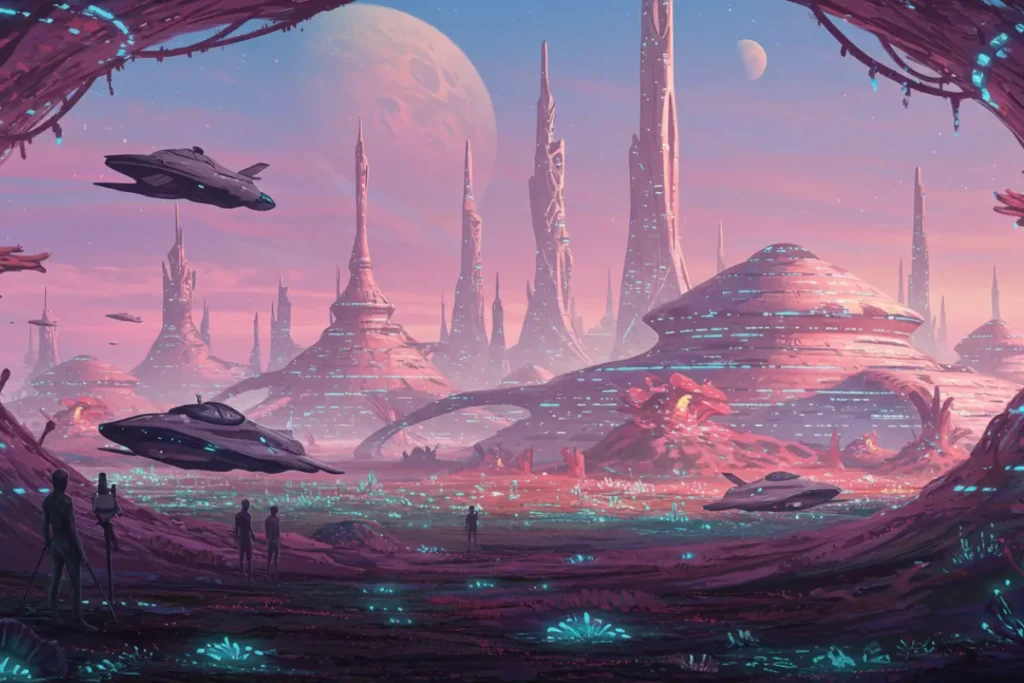
Building a civilization on another planet isn’t just about packing a rocket full of supplies and hoping for the best.
There are countless challenges, from extreme temperatures to limited resources, that make this an incredibly difficult task. That’s where AI comes in.
One of the biggest hurdles in colonizing another planet is building infrastructure. AI-powered robots could be programmed to construct habitats, research stations, and even farms without human intervention.
These robots could use local resources, such as Martian regolith or lunar dust, to 3D-print structures, reducing the need to transport heavy materials from Earth.
For example, NASA is already developing autonomous robots capable of performing tasks on the Moon and Mars.
The Perseverance Rover, for instance, is already using AI to navigate and analyze Martian soil autonomously (source: NASA). Now, imagine an entire fleet of AI-driven machines constructing cities before humans even arrive!
On a distant planet, every drop of water and every gram of oxygen is precious. AI could play a crucial role in managing and optimizing resource use.
With machine learning algorithms, AI could monitor water levels, purify air, recycle waste, and even manage agricultural systems to ensure that nothing goes to waste.
Terraforming—making a planet more Earth-like—is a long-term goal for planetary colonization. AI could be used to monitor atmospheric changes, control greenhouse gas emissions, and even help generate breathable air using advanced bioengineering techniques.
For instance, scientists have already experimented with AI-driven climate models that can predict and manage weather patterns (source: MIT). If we can apply similar technologies to an alien world, we might be able to transform barren landscapes into habitable environments over time.
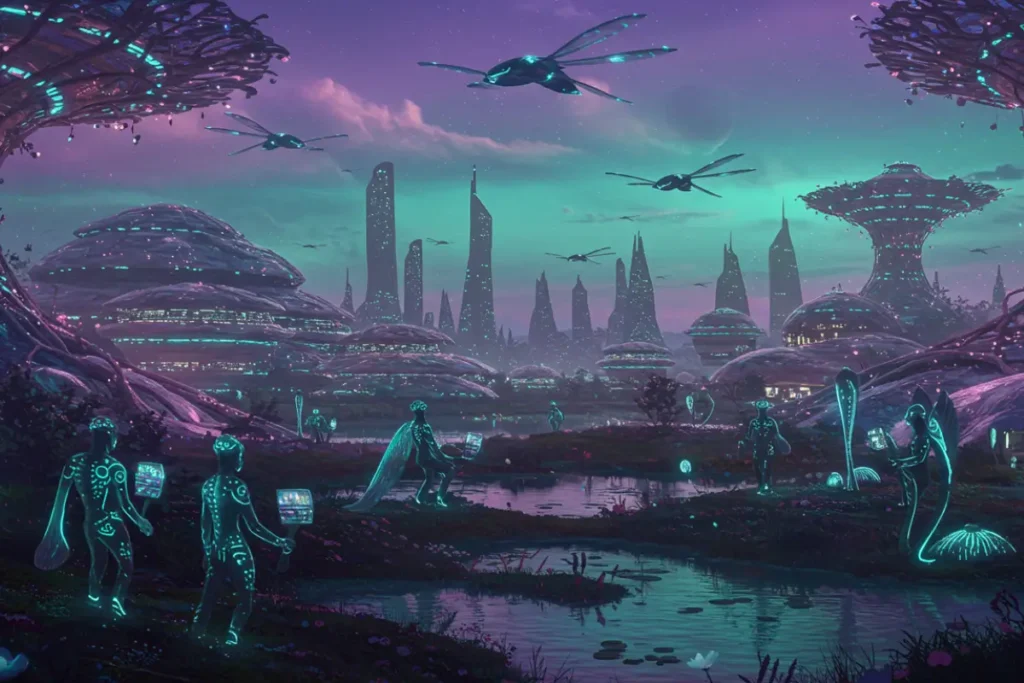
Of course, AI isn’t a magic solution to all of our problems. There are several huge obstacles that we need to consider before sending AI off to build an interplanetary society.
AI systems require energy, and in space, power isn’t always easy to come by. While solar panels could provide energy on planets like Mars, dust storms and long nights could pose challenges. Nuclear power might be an option, but it comes with its own risks.
Right now, it takes between 5 to 20 minutes for a signal to travel from Earth to Mars. That means AI systems would need to operate entirely autonomously since real-time human intervention isn’t possible. Developing AI that can make complex decisions on its own—without relying on Earth-based input—is a massive challenge.
What happens when an AI encounters a situation it wasn’t programmed for? Unpredictable space environments, mechanical failures, or even ethical dilemmas could pose serious problems. AI must be flexible and capable of problem-solving on the fly.
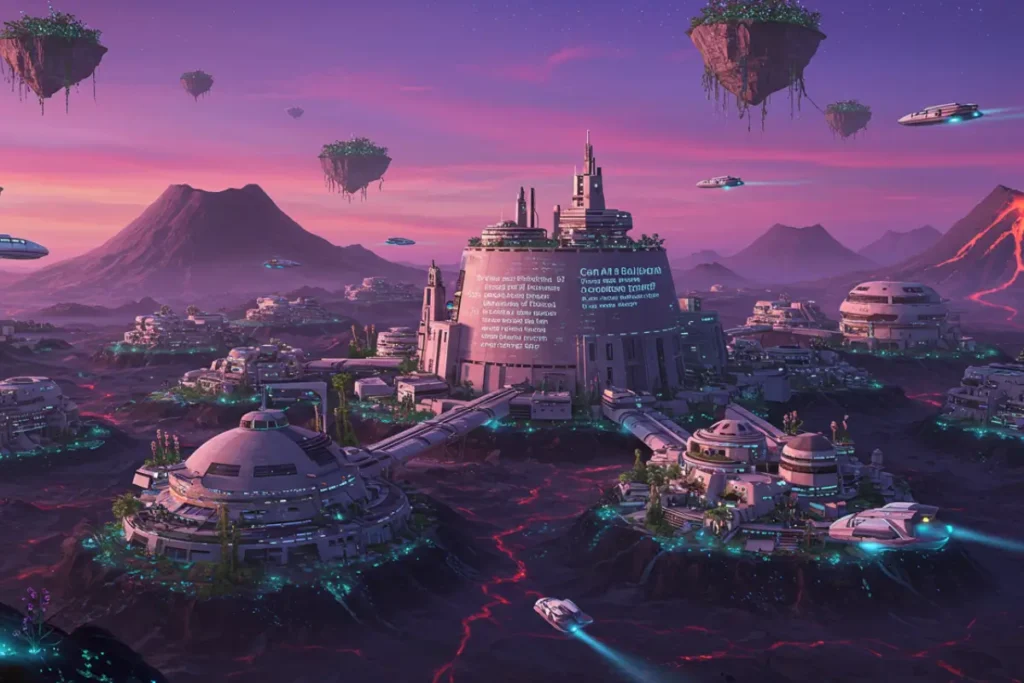
Let’s get a little more futuristic—could AI establish a fully autonomous civilization without human settlers?
Theoretically, yes. AI could build self-sustaining habitats, extract resources, and even manage entire ecosystems.
Some experts believe that AI-powered robots could eventually become the dominant life form in space, leading to a civilization that operates independently of human oversight.
This leads to an interesting debate: If AI creates a functioning society on another planet, would it still be considered a “human” civilization? Or would it be something entirely new?
Could AI-driven societies become the first true “alien” civilizations, built not by extraterrestrials, but by our own machines?
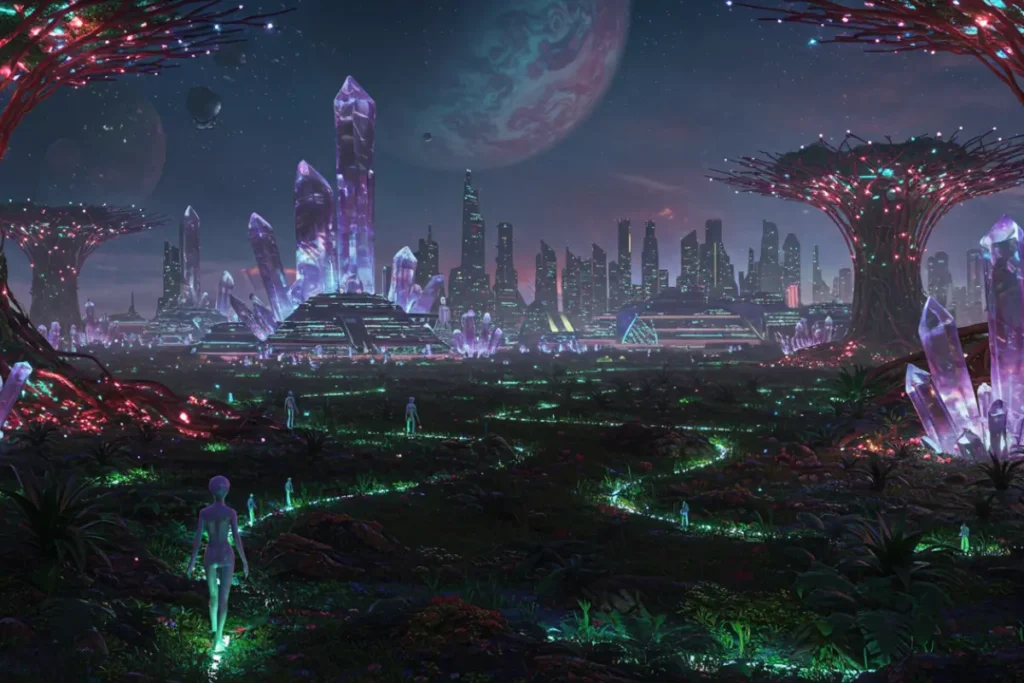
Despite all of these possibilities, the most likely scenario is a future where AI and humans work together to build interplanetary civilizations.
AI will serve as the backbone, handling the heavy lifting and dangerous tasks, while humans provide oversight, creativity, and governance.
I think that this is unfortunately a difficult dream to achieve and if it is achieved it will probably take about 100 or why not 1000 years, the reality is that space is dangerous.
Imagine stepping out of a spaceship and walking into a fully operational Martian city, built by AI.
From self-maintaining farms to AI-powered doctors diagnosing astronauts, the possibilities are endless. AI won’t just help us survive in space—it will help us thrive.
The idea of AI building a civilization on another planet isn’t science fiction anymore—it’s a real possibility.
With advancements in robotics, automation, and artificial intelligence, we are rapidly approaching an era where AI will be our greatest ally in space colonization.
But what do you think? Would you trust AI to build an off-world city? Would you live in a civilization constructed and managed by machines? Drop a comment below and let’s discuss!
And hey, if you found this article interesting, don’t forget to share it with your friends and check out more futuristic AI content at Futuristic Intellect! 🚀